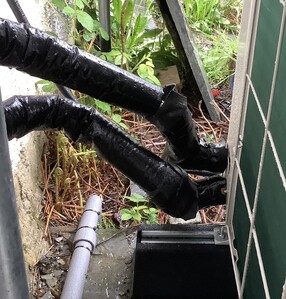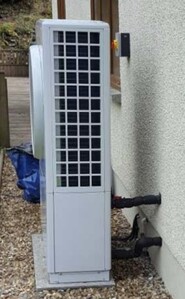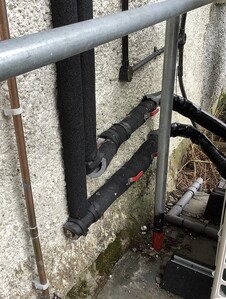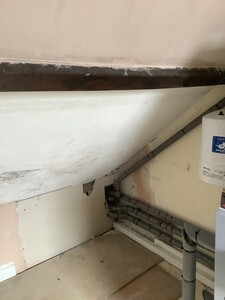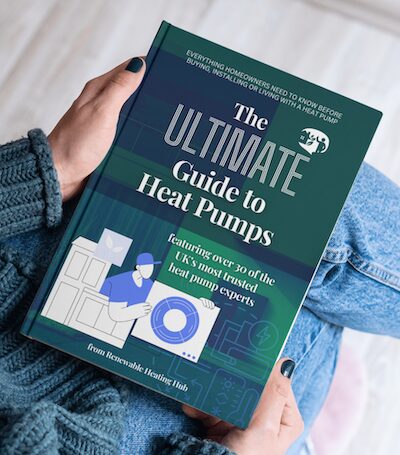The Rise and Fall of Europe’s Most Generous Green Subsidy
This story came to my attention thanks to Graham Hendra. It’s a fascinating (and ultimately sobering) example of how even the most well-intentioned environmental schemes can unravel spectacularly.
In the summer of 2020, as nations scrambled to revive their pandemic-stricken economies, Italy unveiled what would become one of the most ambitious (and ultimately troubled) green energy incentives in modern European history. The Superbonus 110%, a sweeping tax relief scheme designed to accelerate energy-efficient home renovations, promised not just full reimbursement but a 10% profit on installations of heat pumps, solar panels and insulation.
For a brief period, it worked spectacularly. Heat pump sales in Italy surged by 90% in 2021, contractors struggled to meet demand, and the country temporarily became Europe's fastest-growing market for renewable heating. Yet within two years, the programme had collapsed under its own weight – undone by spiralling costs, widespread fraud and market distortions so severe they left Italy's heat pump sector in disarray.
A Subsidy So Generous It Warped the Market
The Superbonus's premise was deceptively simple: homeowners could claim a 110% tax deduction over five years for green retrofits, effectively turning energy efficiency into a profitable exercise. Alternatively, they could transfer the credit to contractors for immediate discounts, creating a cash-like incentive that fuelled rapid adoption.
Initially, the policy appeared transformative. Italy, traditionally lagging behind northern Europe in heat pump uptake, suddenly saw installations multiply. The construction sector boomed, and for a moment, the country seemed to be leaping towards its decarbonisation targets.
Yet problems quickly emerged. The refund's extraordinary generosity (covering more than the actual installation costs) created dangerous incentives. Suppliers and installers inflated prices, knowing the state would pay. Reports surfaced of heat pump systems being sold at double market value, with homeowners indifferent because the government was covering the entire cost... plus an extra 10%.
Meanwhile, Italy's notorious bureaucracy buckled under the strain. The programme, initially budgeted at €35 billion, saw claims balloon to an estimated €110 billion, according to the Bank of Italy. By 2022, the government imposed sudden restrictions, leaving thousands of projects incomplete and triggering a 70% decline in heat pump sales by 2023.
Fraud, Organised Crime and a Crisis of Confidence
If the Superbonus's financial unsustainability was one problem, the explosion of fraud proved equally damaging. Italy's longstanding issues with tax evasion and organised crime found fertile ground in the green subsidy scheme.
Investigations revealed phantom renovations – rebates claimed for work never performed. Some construction firms existed only on paper, created solely to divert state funds. Disturbingly, elements of the Italian mafia reportedly infiltrated the scheme, with arrests made relating to fraudulent Superbonus claims.
Even well-meaning homeowners faced turmoil. Many who began renovations under the scheme found themselves stranded when the government retroactively tightened rules, leaving them with half-finished projects and unexpected costs.
The Superbonus’s fatal flaw wasn’t just its eye-watering cost – it was the gold rush of criminal opportunism it unleashed. Italy’s anti-mafia prosecutors soon uncovered a web of fraud so brazen it turned the green subsidy into what La Repubblica called "a feeding frenzy for organised crime."
In Campania, investigators found €8 million in fraudulent claims for non-existent heat pump installations. Fake companies had submitted invoices for work at addresses that turned out to be vacant lots or crumbling buildings unfit for renovation. The ringleader? A local contractor with ties to the Camorra, who used stolen identities to file claims.
Sicily’s notorious Cosa Nostra infiltrated the scheme by setting up fake "energy efficiency consultancies." These fronts charged homeowners exorbitant fees to "facilitate" Superbonus applications, then pocketed the tax credits. In Catania, one such operation siphoned €12 million before police intervened.
A Rome-based criminal network created 47 shell construction firms that existed only on paper. They forged signatures to claim rebates for over 200 properties, including public buildings and (ironically) a police station. Prosecutors called it "subsidy terrorism" – the group exploited Italy’s overwhelmed audit system to steal €26 million.
The ’Ndrangheta (Italy’s wealthiest mafia group) muscled in on the insulation materials market. In Reggio Calabria, they monopolised supply chains, inflating prices by 300% while threatening legitimate suppliers. When builders complained, one contractor received a bullet in the post – a classic "paghi o muori" ("pay or die") warning.
Even Italy’s financial elite got involved. Investigators discovered private bankers in Milan colluding with contractors to launder Superbonus funds through offshore accounts. One scheme involved a single apartment in Turin that somehow generated €1.2 million in duplicate claims.
Beyond the headlines, ordinary Italians paid the price. In Bari, elderly homeowners were left with half-finished heat pump installations after their contractor (a front for the Sacra Corona Unita mafia) vanished with the funds. Near Venice, a family’s historic home was damaged beyond repair by botched insulation work from unqualified crews rushing to cash in.
As magistrate Nicola Gratteri (Italy’s top anti-mafia prosecutor) warned: "Where the state offers easy money, the mafia arrives first." The Superbonus didn’t just fail – it became a €110 billion masterclass in how not to design a green subsidy.
Parallels with UK Renewable Heat Policies: A Study in Contrasts
Italy’s Superbonus catastrophe stands in stark relief against Britain’s more measured (if imperfect) approach to green heating subsidies. Where Rome’s 110% rebate scheme invited fraud on an industrial scale, Whitehall’s Renewable Heat Incentive (RHI) and Boiler Upgrade Scheme (BUS) demonstrate how structural safeguards can prevent fiscal disasters, albeit at the cost of slower adoption rates.
The UK’s close brushes with renewable heating fraud reveal both the vulnerabilities inherent in such schemes and the institutional mechanisms that contained them. Most notably, Northern Ireland’s RHI scandal – where uncapped tariffs led businesses to burn biomass around the clock in what became known as the "burn to earn" crisis – showed how quickly perverse incentives can spiral. The £490 million debacle forced the collapse of Stormont’s government in 2017, serving as Britain’s own cautionary tale about the dangers of poorly designed subsidies. Yet crucially, the disaster remained geographically contained because Great Britain’s version of RHI included essential usage caps from the outset.
More recently, the BUS scheme has faced its own challenges with fraudulent applications, including cases of contractors claiming grants for non-existent heat pump installations. Energy Saving Trust audits in 2023 identified several "ghost installations" at derelict properties, leading to £1.2 million in recovered funds. What’s telling, however, is how these cases were caught – through upfront verification processes that Italy’s overwhelmed bureaucracy failed to implement. Where the Superbonus operated on a "pay first, check later" basis that invited abuse, the UK’s requirement for proof of installation before payment has acted as a critical firewall against systemic fraud.
The trade-offs in the UK’s approach become clear when examining adoption rates. RHI’s complex eligibility requirements and BUS’s stringent verification processes have undoubtedly contributed to sluggish uptake – with just 76,000 installations under RHI’s 11-year run and fewer than 20,000 BUS grants claimed in 2022. Yet as the National Audit Office noted in its 2023 review, this reflects a deliberate choice to prioritize fiscal responsibility over breakneck expansion. Where Italy’s scheme created a spectacular boom-and-bust cycle that may have set back its heat pump market for years, Britain’s incremental approach has avoided market distortion while maintaining public trust in green subsidies.
The lesson for policymakers is nuanced but vital: well-designed verification mechanisms and spending caps can prevent catastrophic fraud, but they require acceptance of slower progress. As countries worldwide grapple with how to accelerate decarbonisation without repeating Italy’s mistakes, the UK’s experience suggests that in the realm of green subsidies, sometimes the slow and steady approach avoids not just the race, but the wreck.
Get a copy of The Ultimate Guide to Heat Pumps
Subscribe and follow our YouTube channel!
Just goes to show there’s nothing new when it comes to greed.☹️
Toodles, heats his home with cold draughts and cooks food with magnets.
@toodles what could possibly go wrong if the government is handing out loads and loads of free money?
Get a copy of The Ultimate Guide to Heat Pumps
Subscribe and follow our YouTube channel!
What indeed?
Not visited forums for some time, been in hibernation.
Have survived the winter without ASHP.
Someone was wearing rose tinted glasses when writing the above article about UK superiority handing out cash for "free" installations.
Six months after start of ECO4 installation an assessor/inspector from TrustMark is visiting next week.
The outside unit has not fared well. Insulation appears to have been foam tubes held in place with gaffer tape; this has mostly come loose or fallen off.
Didn't expect so much outside work, pipes and cables spread out across walls up to eaves so quite a lot of poorly insulated pipework.
There was an inspection of insulation, more needed doing, but was told that damage to fittings could be reported but there was no guarantee of remedial work. The insulation work hasn't been done and no follow up.
I am probably to blame as I had had enough. One cheap and nasty job replaced with something worse. I was threatened with court action and told contractors to bring it on. Then they said, among other things, that I could employ my own contractors for remedial work but it wasn't clear who would pay, simply don't trust them.
As I have often said I cannot understand why so much of the installation was found acceptable in the first place.
The waste of materials was surprising. While I was in hospital the waste skip was removed leaving behind almost as much surplus material/waste as it had taken away.
Healthcare worker said he had seen worse, although he didn't think that would be much comfort for me.
@dwynwen welcome back… and glad to hear you made it through the winter 😉
I suppose I overlooked the obvious link between the ECO4 scheme and the kind of “free” money abuse we saw in Italy’s Superbonus debacle. The parallels are hard to ignore once you look closely.
I’m still appalled by the way homeowners like you have been treated, and the level of waste involved in some of these installations is staggering. If you’re able to post a few photos of the insulation work, I’ll raise this with the associations and lobbying groups I’m in contact with. These kinds of real-world examples make it harder for decision-makers to ignore what’s going wrong.
Get a copy of The Ultimate Guide to Heat Pumps
Subscribe and follow our YouTube channel!
@editor Attached images of external insulation.
Think recent heavy rain has made matters worse.
Image #2 not good, should show missing tape and sagging insulation exposing pipe.
Image #3 is what I expected, image #4 is what I got.
- 26 Forums
- 2,396 Topics
- 54.3 K Posts
- 93 Online
- 6,077 Members
Join Us!
Worth Watching
Latest Posts
-
RE: Help me keep the faith with my air source heat pump installation
@simonf I’ll ask the installers to get them out. What k...
By AdamK , 2 minutes ago
-
RE: Recommended home battery inverters + regulatory matters - help requested
Thanks for all the help/comments. I completely agree w...
By JamesPa , 2 hours ago
-
RE: ASHP Energy Consumption: Aira 12kW heat pump
I doubt that matters, ToU tariffs are for the benefit o...
By JamesPa , 8 hours ago
-

RE: Free Ecoheat Heat Pump Install
@deltona Yes older houses are problematic like that, bu...
By bontwoody , 10 hours ago
-
RE: Radiator sizing sanity check
As I mentioned early on the cost of supplying and fitti...
By JamesPa , 13 hours ago
-
RE: Advice for a novice on Mitsubishi Ecodan 6kW
I hadn't spotted that there were two pumps in the UFH (...
By JamesPa , 15 hours ago
-
RE: Setback savings - fact or fiction?
Never assume it makes an ass of u and me! You need the...
By JamesPa , 15 hours ago
-
RE: New Mitsubishi Ecodan 11.2kW installation - L9 errors and maybe more
Before I answer your specific questions just one more t...
By JamesPa , 15 hours ago
-
RE: Electricity price predictions
Great point, one of the key ones in my chat with Octopu...
By Batpred , 1 day ago
-
RE: Running from backup generaor in powercut?
Definitely and professionals sometimes miss it. I had...
By Batpred , 1 day ago
-

RE: New Fogstar 15.5kWh upright solution
Let me point out that there are many Chinese suppliers ...
By Transparent , 1 day ago
-

RE: Weather compensation- why you should use it
@majordennisbloodnok — The Two Ronnies Mastermind sketc...
By cathodeRay , 1 day ago
-
Just realised that this image of the cylinder cupboard ...
By Sheriff Fatman , 1 day ago
-

RE: Rodents! A word of warning for heat pump owners
Two thoughts: 1: Let's ask @david-s if Primary Pro in...
By Transparent , 1 day ago
-
RE: Solis S6-EH1P8K-L-PLUS – Why I Chose It and What I’ve Learned So Far
In the diagram below, I describe my understanding of th...
By Batpred , 1 day ago
-
I need to have a look out for it. I know IBM feeds some...
By Batpred , 1 day ago
-
-
RE: Daikin Atherma ASHP Cycling 6 Times an Hour?
Thanks for your reply. Yes that's a good idea to try a...
By John Marshall , 2 days ago
-

RE: Hot water heating in parallel with space heating
An external heat exchanger would need a pump which woul...
By bontwoody , 2 days ago
-
RE: Gen 6 Samsung ASHP losing 20C of DHW in 60 min directly after generation
@ecobaker Thanks for this. I've had it in both slots. ...
By andbeck , 2 days ago



